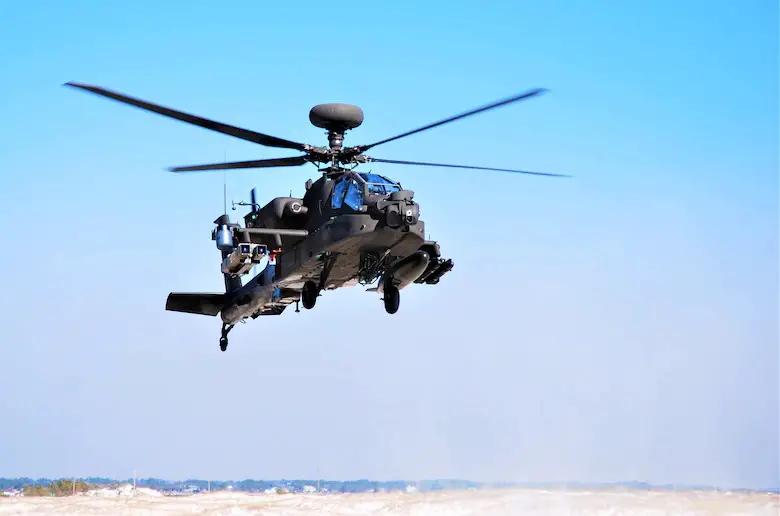The Foreign Comparative Testing (FCT) Program assisted the Future Vertical Lift Cross Functional Team (FVL CFT) and the U.S. Army Combat Capabilities Development Command Aviation and Missile Center to acquire, test and evaluate a promising foreign Israeli technology, the SPIKE Non-Line of Sight missile. The effort involved acquiring, incorporating the system on the airframe and firing the SPIKE NLOS missile from a U.S. Army AH-64E Apache helicopter at Yuma Proving Ground, Arizona, in August 2019. The SPIKE NLOS missile was incorporated onto a U.S. Apache helicopter and launched during a live-fire demonstration at YPG. The experiment was designed and executed by the FVL CFT and CCDC AvMC Technology Development Directorate-Aviation/Systems Integration & Demonstration teams.
The SPIKE NLOS missile supports the Army’s third modernization priority, Future Vertical Lift’s signature effort the Future Attack Reconnaissance Aircraft (FARA). The FARA ecosystem includes the Long Range Precision Munition and Air Launched Effects. During the experiment the AH-64E was the surrogate FARA, SPIKE NLOS was the surrogate LRPM, and Area-I’s ALTIUS 600 UAS was the surrogate ALE. Showcasing the ecosystem allowed Army aviation to demonstrate the reach, range, and lethality of both the Apache with SPIKE and the future FARA will LRPM. Today, the SPIKE NLOS missile could provide an interim solution that exceeds the range of currently fielded systems, if the Army decides to purchase the missile.

The demonstration included other steps – purchasing the missiles, incorporating the SPIKE system onto the Apache helicopter, obtaining import and export licenses, conducting electrical and mechanical airworthiness validations, flying the aircraft from Fort Eustis, Virginia, to Yuma, Arizona, and conducting a hazard analysis and risk assessment. Prior to the demonstration at Yuma, the SPIKE NLOS missile was launched in Israel using Israeli Apache helicopters. The Israeli live-fire event was crucial to inform LRPM capabilities; it also was the first time U.S. military aviators fired the ordnance from an Israeli helicopter. The demonstration was conducted by aviators from the 82nd and 25th Combat Aviation Brigades.
Spike is an Israeli fire-and-forget anti-tank guided missile and anti-personnel missile with a tandem-charge HEAT warhead, currently in its fourth generation. It was developed and designed by the Israeli company Rafael Advanced Defense Systems. It is available in man-portable, vehicle-launched, and helicopter-launched variants. “Non Line Of Sight” is an ultra long-range version of the weapon (Tamuz), with a claimed maximum range of 25 kilometres (16 miles). It is a significantly larger missile than other Spike variants, with an overall weight of around 70 kg (154 lb 5 oz). It can be launched from the ground or from helicopters. It was developed following lessons learned in the Yom Kippur War, which showed a need for a high-precision guided tactical ground-to-ground battlefield missile.















